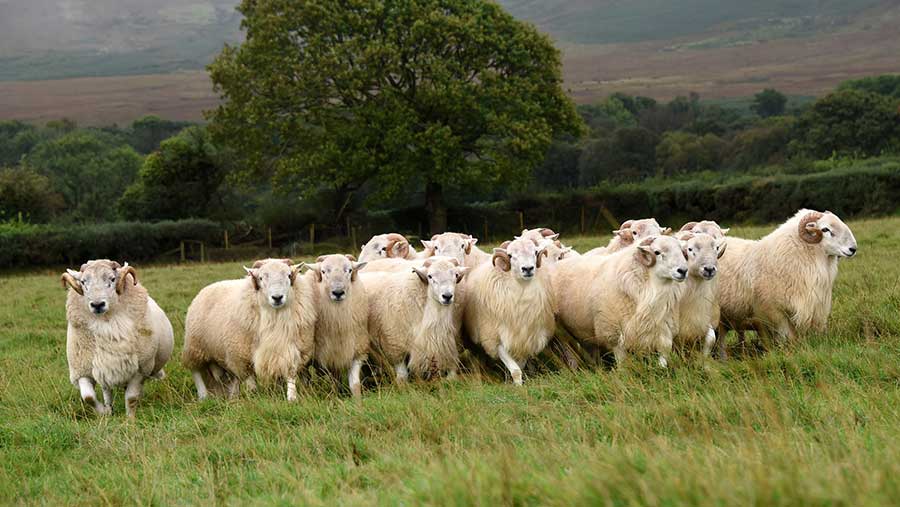Sheep get genomic EBVs in major step for hill breeds
 © HCC
© HCC A landmark project has yielded genomic values for the maternal, growth and carcass traits for six British hill sheep breeds.
Dubbed the most exciting breakthrough in decades, the genomic estimated breeding values (gEBVs) are available for Welsh Mountain, Eppynt Hill/Hardy Speckle, North Country Cheviot (hill type), Scottish Blackface, South Welsh Mountain and Brecknock Hill Cheviot, through Signet.
Farmers have been told the benefit of gEBVs is that genetic recording undertaken in a small number of purebred flocks can produce high-accuracy indices for sheep farmers buying performance-recorded rams.
See also: Sheep breeding index reduces methane and betters performance
The potential savings across the industry are enormous, particularly when considering traits that are expensive or time-consuming to measure, such as:
- Feed efficiency
- Methane emissions
- Feed intake
- Meat quality.
Swaledales and other hill breeds do not have genomic indices because the genomic data have not been gathered yet, explained Signet breeding services manager Samuel Boon.
“The good news is that now the framework is developed it will be easier for other breeds to work towards genomic breeding values if they so desire.
“In 25 years of working in UK sheep genetics, this is the most exciting development yet.”
Hill scheme
The breakthrough comes as a bonus benefit of the Hill Ram Scheme in Wales, a five-year performance project run by Hybu Cig Cymru (Meat Promotion Wales).
The scheme used DNA parent verification by ear tissue sampling to performance-record flocks to produce normal estimate breeding values. The DNA was then harnessed by geneticists at Scotland’s Rural College (SRUC) to produce gEBVs.
Dr Samir Id-Lahoucine of Egenes at SRUC said: “There are some challenges in producing gEBVs for different breeds and cross-breeds, but the project produced good data that enabled high-accuracy indices to be calculated.
“We are looking forward to gEBVs being a routine part of evaluations to provide higher prediction accuracies to select and propagate superior rams, leading to more genotyping, more performance recording and more genetic improvement in the UK sheep sector.”
Prof Eileen Wall, head of research at SRUC, said gEBVs are a “game-changing” moment for the sheep industry.
